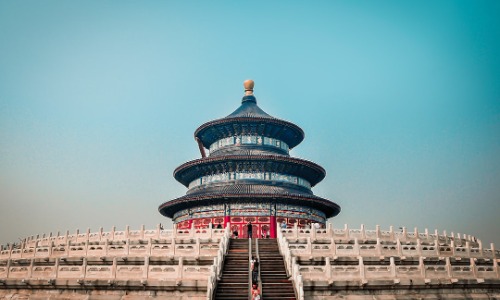Kawashima Yoshiko was the 14th daughter of Prince Su, an eminent member of the Qing Dynasty who was one of the “Iron Hat Princes,” a title given to the eight most distinguished Manchu princes who had contributed to the founding of the dynasty. The first Prince Su was the eldest son of Emperor Hong Taiji and his primary consort, Empress Ulanara.
Prince Su Zhong, the 10th Prince Su, played a role in protecting Japanese residents during the Boxer Rebellion in 1900 by providing refuge in the royal palace. As a result, the Japanese government held a debt of gratitude towards the Prince Su family. Later, Kawashima Naniwa, who served as an interpreter for the Japanese army, convinced the Chinese soldiers guarding the Forbidden City to surrender , which helped to preserve the historical landmark.
Kawashima Naniwa and Prince Su Zhong became close and often discussed their shared desire for a constitutional monarchy in China similar to the Meiji Restoration in Japan. However, their efforts were thwarted by conservative officials loyal to Empress Dowager Cixi, and the Xinhai Revolution in 1911 eventually led to the end of the Qing Dynasty.
When Yuan Shikai demanded that the emperor abdicate, Prince Su Zhong and Prince Gong Wei opposed the idea. Feeling threatened, Prince Su Zhong fled Beijing and sought refuge with the Japanese navy in Lushun, along with his family members. His daughter, Kawashima Yoshiko, was only seven years old at the time and was adopted by Kawashima Naniwa, and raised in Japan. Prince Su Zhong passed away in Lushun in 1922, still hoping to return to Beijing and restore the imperial rule.
After his death, he was posthumously bestowed the title “Zhong” by the last emperor of the Qing Dynasty, Puyi, as a recognition of his loyalty. Although a monument and statue were erected in Lushun to honor him, they were destroyed during the Communist era. Prince Su Zhong was buried in Beijing, but the tombs of his predecessors and the treasures that were buried with them were all looted and destroyed during the Cultural Revolution, leaving little trace of their existence.
